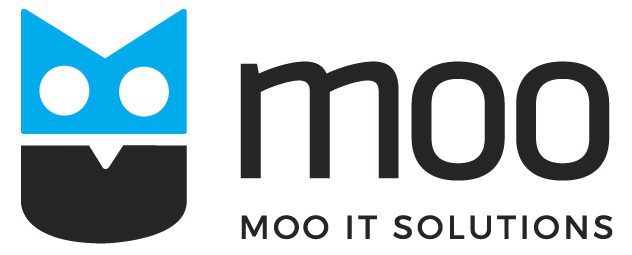The Real Cost of Choosing the Wrong IT Model
75% of IT decision-makers report skill gaps in their teams are causing delays and draining productivity.
| As Anthony Moussa, CEO, MooIT Solutions says, “Companies no longer need to choose between speed and scale—just the right service model.” |
If you’re struggling to keep up with your IT demands, expand capabilities, or control costs, you’re not alone.
According to a report by CloudSecureTech, 78% of businesses face significant challenges due to insufficient in-house IT resources. In fact, 3 out of 4 IT decision-makers have identified skill gaps within their teams.
One of the most important strategic decisions you’ll make is whether to supplement your team with staff augmentation or outsource entirely via managed services. The wrong choice can lead to wasted budgets, misaligned operations, and business disruption.
Let’s help you make the right one.
Take Control of Your IT- Without the OverheadMooIT Solutions takes the stress off your plate. Our tailored staff augmentation vs. managed services offerings help you meet goals without the hassle. |
What Is Staff Augmentation?
Staff augmentation is a flexible outsourcing model where you bring in external IT professionals to supplement your internal team.
When to Use It:
- You need extra hands on a short-term project.
- You’re missing specific technical skills temporarily.
- You already have internal project managers or leads in place.
Common Examples:
- Hiring a cloud migration expert for a 6-month contract.
- Bringing in a cybersecurity specialist during a compliance audit.
- Scaling up your development team to meet a tight deadline.
Benefits:
- Full control over project management
- Faster hiring turnaround
- Adaptable to changing project needs
- Lower commitment compared to full-time hiring
But with control comes responsibility—you manage deliverables, productivity, and timelines.
What Are Managed Services?
Managed services involve fully outsourcing your IT needs to a third-party provider who manages your systems, infrastructure, security, and even strategic direction.
When to Use It:
- You want to hand off the burden of IT management.
- You lack in-house IT expertise.
- You prefer predictable, fixed monthly costs.
Common Examples:
- 24/7 helpdesk and end-user support
- Ongoing network monitoring and maintenance
- Managed cybersecurity solutions
- Microsoft 365 or Azure administration
Benefits:
- Comprehensive coverage and accountability
- Proactive issue resolution
- Long-term partnership
- Strategic IT planning included
You don’t need to worry about hiring, training, or managing IT staff—your provider owns the results.
| More articles you might like: |
Staff Augmentation vs. Managed Services: What’s the Difference?
Understanding the Models Side by Side
| Feature | Staff Augmentation | Managed Services |
| Ownership | You manage the project | Provider manages outcomes |
| Flexibility | High – contract as needed | High – scalable plans |
| Cost Structure | Pay per resource/hour | Fixed monthly fee |
| Speed to Implement | Fast onboarding | Requires onboarding period |
| Responsibility | Shared – you manage tasks | Provider is fully accountable |
| Strategic Involvement | Low | High – includes IT strategy |
| Ideal For | Short-term tasks, skill gaps | Long-term IT support & strategy |
When Should You Choose Staff Augmentation?
Choose staff augmentation if:
- You need to quickly scale a project team without permanent hires.
- You have strong internal IT leadership.
- You’re running a project that requires niche skills.
- You face fluctuating workloads that don’t justify full-time roles.
💡 Example: You’re building a new customer portal and need a React developer for 3 months. Staff augmentation fits perfectly.
When Should You Choose Managed Services?
Choose managed services if:
- You’re overwhelmed managing your IT and need predictable support.
- You lack the resources or bandwidth to monitor systems 24/7.
- You’re scaling and want your IT to grow with you.
- Cybersecurity, uptime, and compliance are top priorities.
💡 Example: Your internal team struggles to keep up with day-to-day support. A managed services provider steps in with guaranteed SLAs and proactive monitoring.
Can You Use Both?
Absolutely. Many businesses adopt a hybrid approach:
- Start with staff augmentation for a specific initiative.
- Transition to managed services for ongoing optimization and support.
This lets you move fast, stay lean, and strategically shift responsibility over time.
Table: Choosing the Right Model – Quick Guide
| Decision Factor | Best Model | Watch Out For |
| Short-Term Skill Gaps | Staff Augmentation | Lack of integration with your team |
| 24/7 Support Needs | Managed Services | Requires trust in third-party oversight |
| Internal Team in Place | Staff Augmentation | May stretch your management capacity |
| Scalability and Growth | Managed Services | Ensure the provider can scale with you |
| Budget Predictability | Managed Services | Less flexibility in pricing changes |
| Urgent Project Deadline | Staff Augmentation | Resource availability may vary |
The Clear Path Forward: Managed IT That Scales with You
Choosing between staff augmentation vs. managed services isn’t just about IT—it’s about your business model, your team, and your growth goals. Staff augmentation offers flexibility and control for short-term needs. Managed services provide strategic, long-term value and peace of mind.
MooIT Solutions specializes exclusively in managed services, delivering comprehensive, scalable IT support designed to drive long-term business growth. From 24/7 monitoring to cybersecurity and strategic guidance, MooIT ensures your technology never holds you back.
Ready to take the next step? Contact MooIT Solutions today and schedule your consultation.
|
Trusted Managed IT Services Near You |



